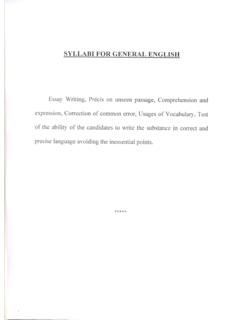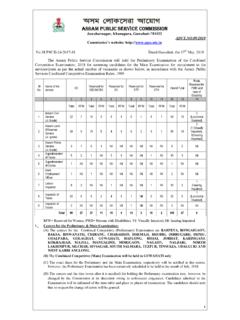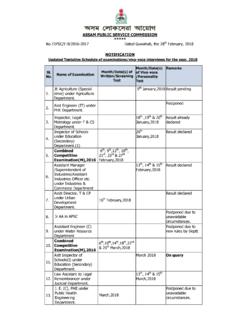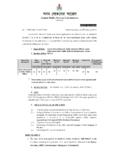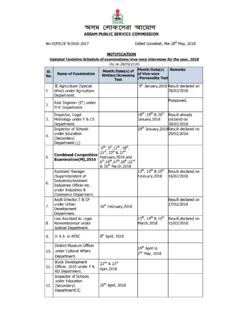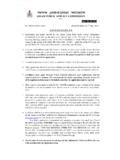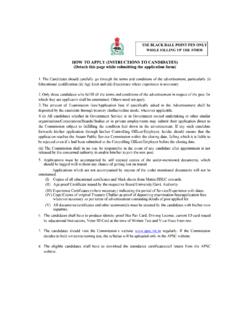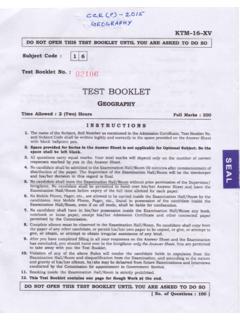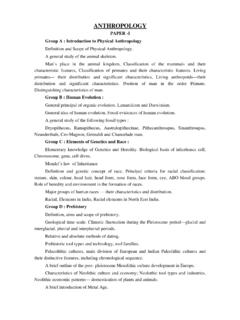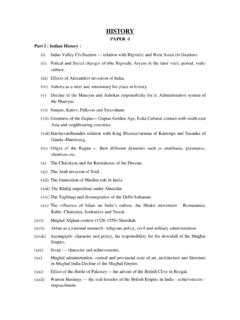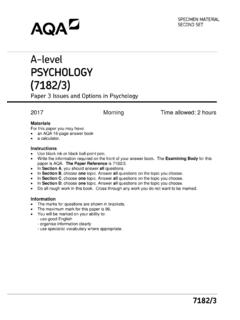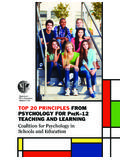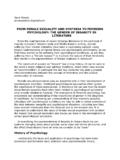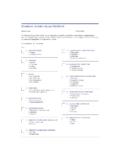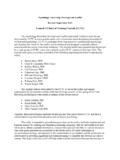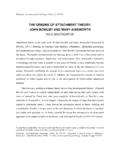Transcription of PSYCHOLOGY - APSC
1 PSYCHOLOGY . PAPER I. 1. Physhology as a science. Origin of experimental PSYCHOLOGY (Wundt and James). Methods of PSYCHOLOGY , Pure and applied aspects of PSYCHOLOGY .). 2. Nervous system, Neurone and nerve impules, Central and autonomic nervous system, Endocrine system. 3. Sensory Processes - Visual sense, Auditory sesnse, Other Sesnes. 4. Perceptual process, Perceptual constancies, Organization and perception, Colour and form perception, Depth and movement perception, Role of experience in perception. 5. States of consciousness, Verieties of waking States, Sleeping and dreaming, Hypnotic and drug induced States.
2 6. Conditioning and learning, Classical conditioning, Operate conditioning, Principles of reinforcement, Phenomena of exinction, discrimination and generalisation. 7. Multiple response learning, Congnitive learning, Learning by modelling. 8. Verbal learning and memory, Input term memory, Long term memory, Forgetting. 9. Nature of motivation, Basic motives and their correlates, Hunger, thrust and sex, psychological changes in emotion. Theories of emotion (James-Lenge, Cannon-Bard). and problem solving, Cannon formation, Lenguage and thinking, Set as a factor in problem solving.
3 , Reactions to frustrarion, Defence mechanisms. Defence mechanisms and adjustment. of atitudes, Development of attitudes. Attitude changes. Measurement of attitude. PSYCHOLOGY . PAPER II. 1. Basic concepts of phychophysics, Absolute and differential thresholds, Phychophysical methods of limit, constant stimuli, average error, equal appearing interval and paired comparison. Weber - Fachner law. 2. Nature of human intelligence, Individual and group difference in intelligence, Tests of intelligence and aptitudes indentification of creativity. 3. Meaning of personality, Type and trait approaches, Personality assessment.
4 4. Theories of personality, Murray, Freud, Lewin and Pogers. 5. Growth and development through childhood and adolescence. Physical growth and motor development. Mental growth and development. 6. Behaviour disorders. Phychoneuroes. Psychoses. Psychosomatic and personality disorders, Phychotheraphy and mental hygiene. 7. Clinical PSYCHOLOGY , Psychoanalytic, client - centered group and behaviour therapies. 8. Social perception, Nature of person perception, Social interaction. Power processed and structures. Norms and conformity. 9. PSYCHOLOGY in industry.
5 Work environment. Industrial fatigue. Personnel selection. Organization Climate. Organizational Leadership. Job analysis and job evaluation. 10. Schools of PSYCHOLOGY - Behaviourism. Psychoanalysis and Gestalt PSYCHOLOGY . scales of measurement. Steps in test construction and standradisation. Item construction and analysis. Reliability, validity and norms. statistics Frequency distribution and graphic representation. Measures of central tendency, measures of variability. Cumulative distributions and percentilies, Normal Probability curve.
